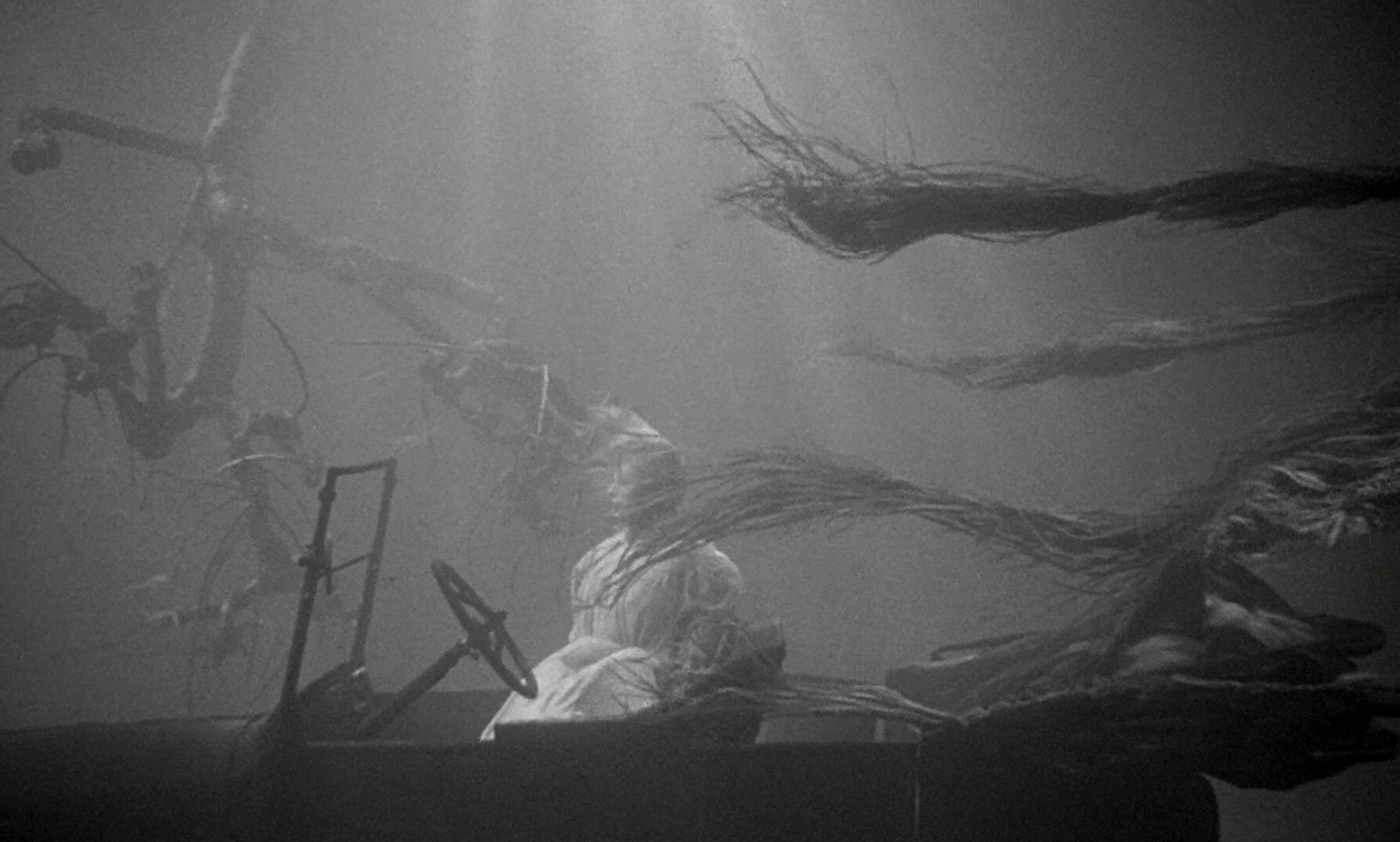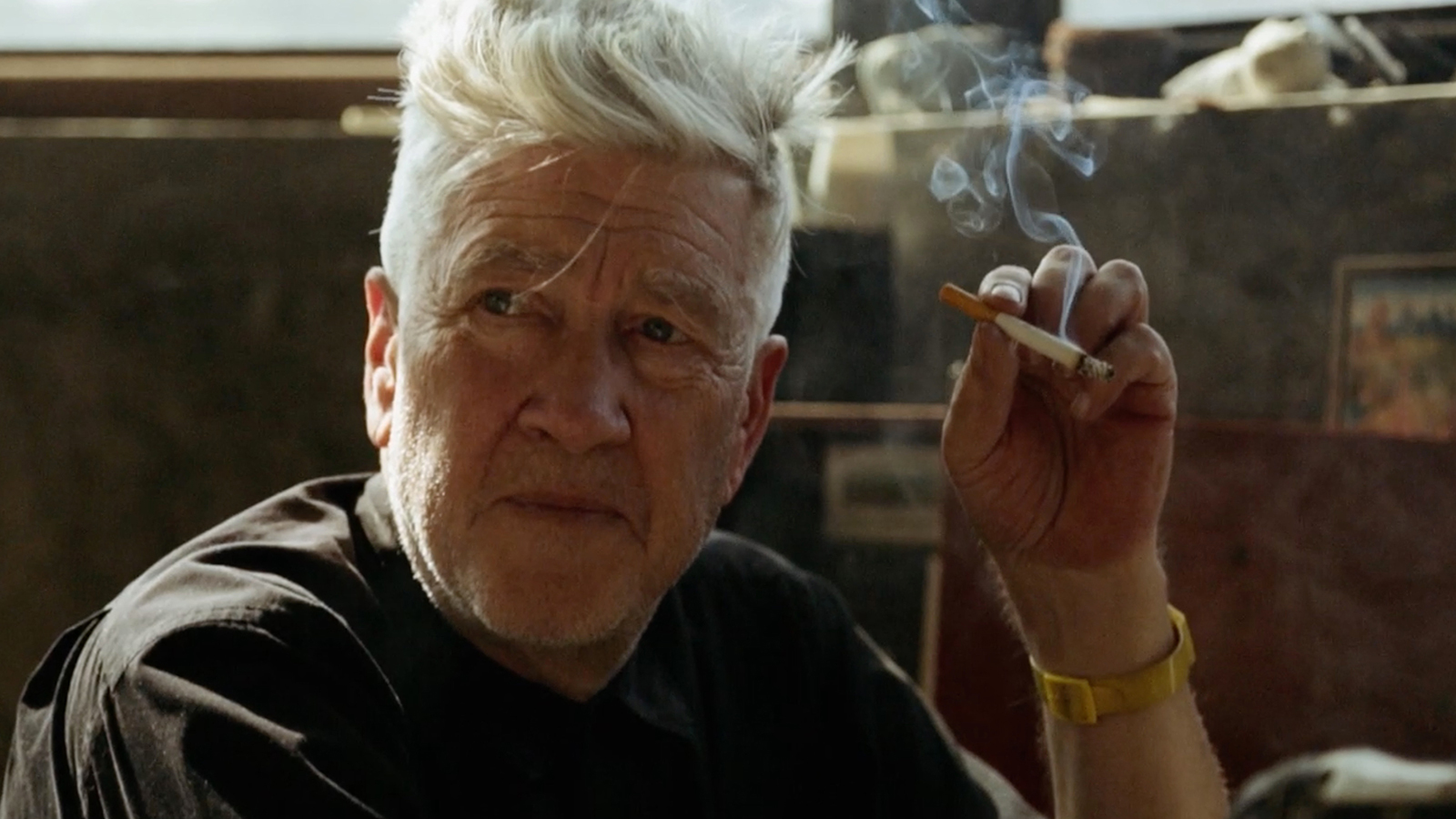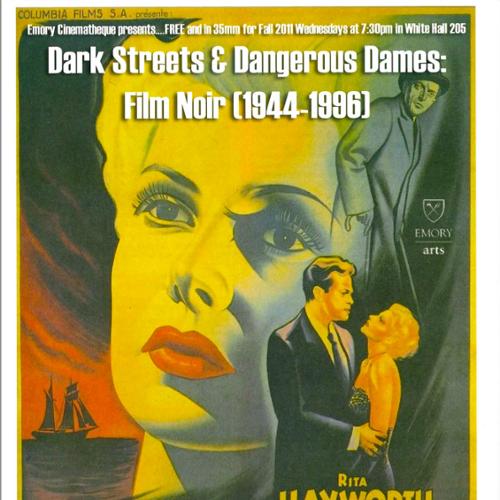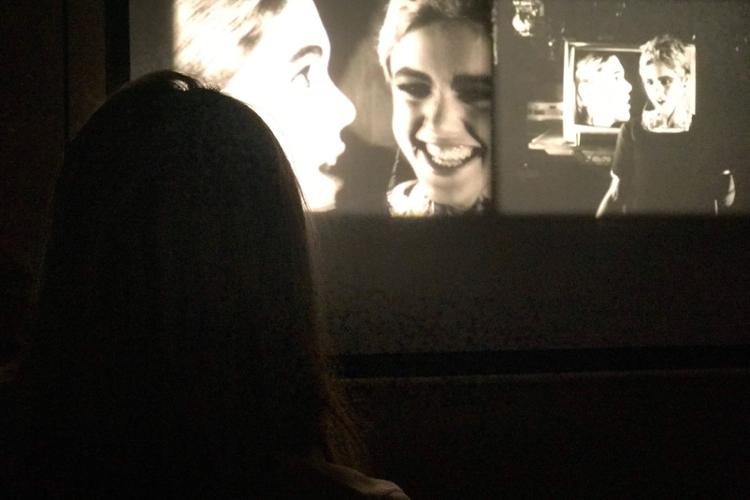Emory Cinematheque
Fall 2024 Cinematheque

The Emory Cinematheque, a series of free, professional film screenings offered by the Department of Film and Media and Emory College of Arts and Sciences, is back for its 43rd season. For Fall 2024, we are pleased to present “Southern Gothic,” curated by Assistant Professor in Theater Studies, Lydia Fort.
All screenings are on Wednesdays at 7:30 p.m. in White Hall, Room 208. The Cinematheque runs from September 4 until December 4 and is free and open to the public.
The Night of the Hunter (1955), directed by Charles Laughton, is a haunting and visually striking thriller based on Davis Grubb's novel. The film follows Reverend Harry Powell (Robert Mitchum), a charismatic but sinister preacher who marries and murders wealthy widows for their money. When he sets his sights on a young widow (Shelley Winters) and her children, they must flee for their lives as Powell's twisted obsession grows more dangerous. Mitchum delivers a chilling and iconic performance as the enigmatic villain, while Lillian Gish shines as a maternal figure who offers sanctuary to the hunted family. Laughton's expressionistic direction imbues the film with an eerie and dreamlike atmosphere, creating a timeless cinematic masterpiece that continues to captivate audiences with its blend of horror, suspense, and moral complexity.
Wise Blood (1979), directed by John Huston, is a darkly comedic adaptation of Flannery O'Connor's novel. The film follows Hazel Motes (Brad Dourif), a disillusioned war veteran who becomes a self-proclaimed preacher in the American South. As he grapples with his beliefs and confronts the hypocrisy of organized religion, Hazel embarks on a surreal journey of self-discovery. Dourif delivers a captivating performance, capturing the complexity and eccentricity of the enigmatic protagonist. Harry Dean Stanton, Ned Beatty and William Hickey also star, and their performances of questionable characters is a delight. Huston infuses the narrative with his trademark wit and visual flair, exploring themes of faith, identity, and redemption in a provocative and thought-provoking manner.
O Brother, Where Art Thou? (2000), directed by Joel and Ethan Coen, is a whimsical and irreverent comedy set in Depression-era Mississippi. Loosely based on Homer's "Odyssey," the film follows three escaped convicts—Ulysses Everett McGill (George Clooney), Pete Hogwallop (John Turturro), and Delmar O'Donnell (Tim Blake Nelson)—as they embark on a journey to find hidden treasure and reunite with their families. Along the way, they encounter a colorful cast of characters and get entangled in various misadventures, including run-ins with law enforcement and encounters with mythical figures. Clooney delivers a charismatic and hilarious performance as the fast-talking Everett, while the Coen Brothers' trademark wit and visual style infuse the narrative with charm and whimsy. "O Brother, Where Art Thou?" is a delightful and offbeat odyssey that celebrates the power of friendship, redemption, and the enduring spirit of Americana.
Fall 2023 Cinematheque
The Emory Cinematheque, a series of free professional film screenings offered by the Department of Film and Media and Emory College of Arts and Sciences, is pleased to present “The Cinematic Worlds of David Lynch.” One of the most significant, eccentric, challenging, debated, and multifaceted American filmmakers still working today, Lynch has long operated on the fringes of Hollywood and his directorial career has been marked by several highs and lows. Although none of Lynch’s films have been massive hits, his name alone conjures the surreal peculiarity, dark humor, and ambivalent audiovisual tone defining his cinematic signature, a sensibility and atmosphere that many simply call “Lynchian.”
"In many ways, David Lynch’s filmmaking career has been distinguished by the consistency of his vision—even as he moves through different media, genres, and platforms—and the inconsistency of critical and commercial success,” remarks Dr. Timothy Holland, Assistant Professor in the Department of Film and Media, who curated the series. “He remains a remarkable figure in the world of cinema not only for his ability to create unforgettable films and those ‘Lynchian’ scenes and characters he’s famous for, but also his ability to keep creating on his own terms. His films belong neither to the mainstream nor the avant-garde, but occupy a space in relation to both, a space unique to his imagination, artistic output, and hold on our cultural consciousness."

Past Cinematheque Series

